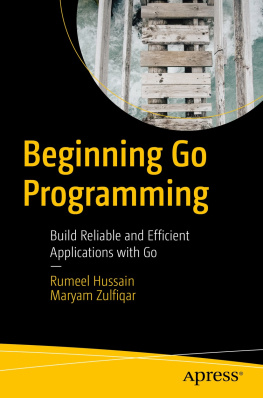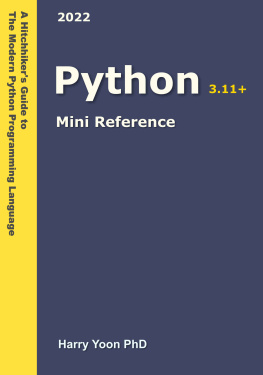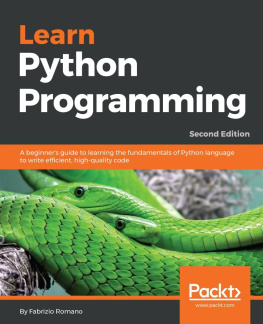A Beginner's Guide to Learning the Fundamentals of a Multi-Paradigm Programming Language and Getting Started with Data Management
Introduction
There are many different coding languages, and C++ is usually not on the list of simple coding languages that we may work with along the route. We may discover that there are numerous advantages to working with this type of language, but it is frequently perceived to be more difficult to work with than some of the others available.
As we progress through this guidebook, you will discover that this is a fantastic language to work with. It will provide us with some of the best tips and techniques that we require, as well as demonstrate how to type down some of the different codes that we require within this language. If you're seeking a powerful coding language that can help with web applications, games, and so much more, and you want to learn how to use it right away, this is the manual for you.
Inside, we'll study everything we need to know about programming in the C++ language. We will begin with some of the fundamentals of working in this language, such as what this language is all about, some of the advantages of working with this language over others, and a look at some of the histories that will be associated with this language.
Once we've mastered the fundamentals of the C++ programming language, we may move on to some of the more advanced topics. We'll go over the syntax and fundamentals of this language in great detail. It is a little different from some of the other coding languages out there, therefore we must first learn how to make this happen before we can start on our scripts. We will also look at some of the different libraries that are popular and work well with the C++ language and can be used to extend some of the features that we can see with this language.
We now understand some of the fundamentals of C++ programming and have a better understanding of the language as a whole. It is now time to dive into the details of how to do some of the codings that we desire. There are so many different types of codes that we can focus on, and so many different things that we can deal with inside this language, and we will look at what these are, the codes that function with them, and so much more.
We will conclude this handbook by looking at how we may perform some of the basic debugging required in this type of language. There will be moments, especially as a beginner in this language, when the codes will not necessarily work as you would like, or there will be errors that you must correct. This can be tough for a newbie because they want to be able to manage these codes and get the programs to run, but they may be unsure of how to correct some of the errors that are created.
What is C++?
A lot of beginners categorize C++ as a complicated programming language. Whatever the reason it may be, C++ is not a complicated language but a computer language that is with a lack of good resources for beginners. This is the way it is because it is a programming language that has evolved from another major programming language (C programming language) for the past four decades.
"C++ is a programming language that is a spinoff to C programming language with the addition of Object-oriented principles such as inheritance and polymorphism. C++ is a subset language of C that evolved into a much bigger instance that it is intended to be."
History of C++
In the initial days, C++ is just used as a fork language for C and is used to be converted back to C before compiling as there is no direct compiler. A compiler called Cfront is famous for doing this job. However, after a few years, people working with C++ have found it too difficult to create code in a language that doesn't have an actual compiler. So, certain developers started developing a compiler, and the task is finally achieved by Bjarne Stroustrup with a working C++ compiler.
With the implementation of strict syntactical structures within few years, C++ has been recognized by ISO (International standard organization) in 1998. The first updated version was released in the same year, and people were surprised by the new additional features that C++ started to offer. It has started using advanced turing techniques to decrease the compile-time and has also introduced templates in the first version. All these robust new features have helped C++ to develop complex software that supports system programming. Within a few years, C++ has improved tremendously and has included a lot of advanced features that can be used to create generic applications.
It is important to appreciate Microsoft for the sudden up rise of C++ as a programming language. Microsoft started to use C++ for its development software Visual C++. A lot of programmers developing applications for Microsoft systems started to find how reliable and comfortable C++ is to work with. By 2009, C++ standard library has been updated with various complex systems, mathematical and time functions.
Why has C++ become successful?
The success of C++ is mainly due to its object-oriented nature. In the early 1980s, the object-oriented programming paradigm took the technological world by storm. People were impressed with the adaptability and simplicity it offers. A lot of built C libraries at that time can be easily transformed into C++ functional libraries.
All of these factors combinedly helped C++ to become one of the popular high-level programming languages of this decade. It is estimated that by 2025, 15% of the Robotic applications will use C++ as a primary language to develop their resources.
Setting up a C++ environment for different operating systems
All of the software that is used to create C++ software consists of a code editor and an inbuilt debugger to show possible errors. If you are an old cliched guy, you can simply use a text editor and run the program using the command-line environments. It still works perfectly. However, for this section, we will discuss advanced integrated development environment software that can be used to create C++ programs.
How does the IDE work?
IDE's use the combination of the editing program, Compiler chain mechanism, and debugging to create efficient programs.
Note:
Remember that C++ doesn't provide an interpreter if you are trying to work on the command line execution program.
C++ is famous among programmers for its advanced capabilities and easy syntax. Even with the impact of high-level programming languages such as Java and Python, C++ does not lose its charm. This chapter, a comprehensive introduction to C++ programming language and its history, will help you understand the importance and origins of one of the popular programming languages in detail. In this book, we have explained various complex programming topics in Layman's terms. To understand and appreciate much of the information, it is important to understand the importance of C++ as a programming language. Let us learn in detail about C++ now.
What is special about the New C++ version?
The newer versions of C++ are developed to support developers who are trying to implement complex real-world projects. Here are some of the notable advanced features that C++ provides.
a) Advanced data structure implementation
Simple data structures such as Tress and Linked lists can be easily implemented through basic C++ versions. However, it is impossible to implement advanced data structures such as graphs and binary trees using the older versions. Newer C++ versions, on the other hand, provide standard libraries that help us to implement map and hash values which can be further used to implement advanced data structures.





